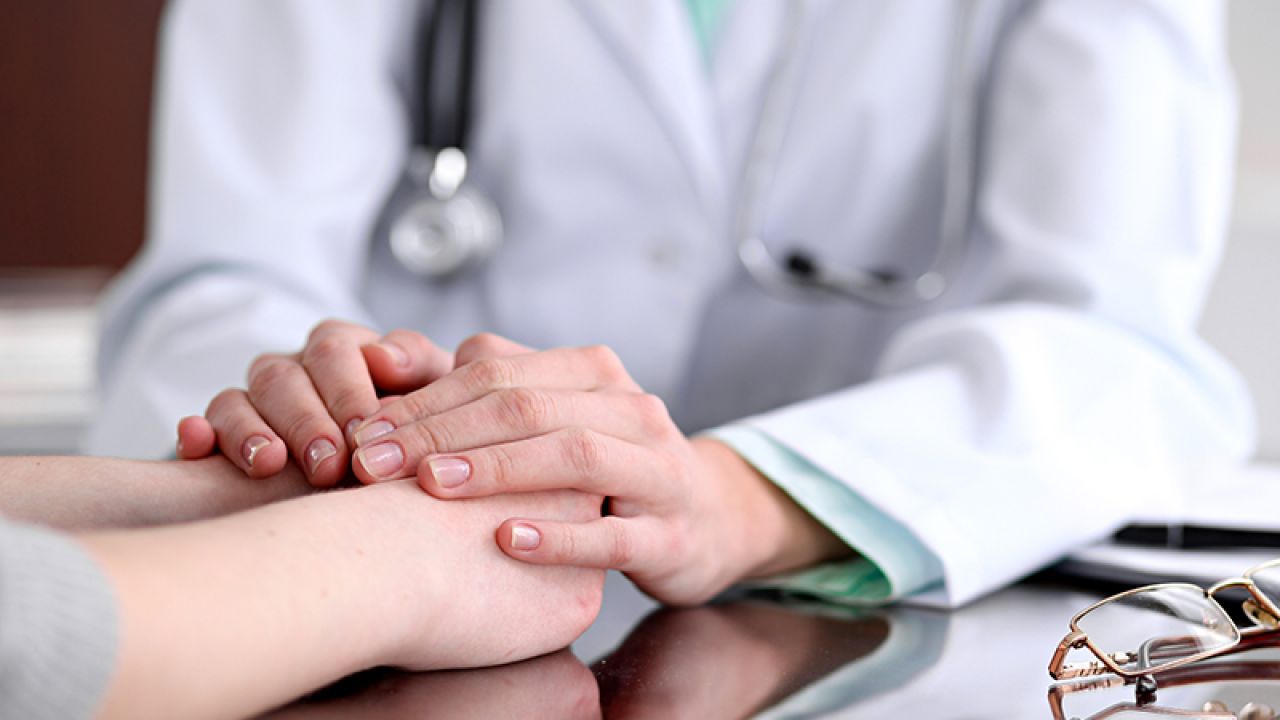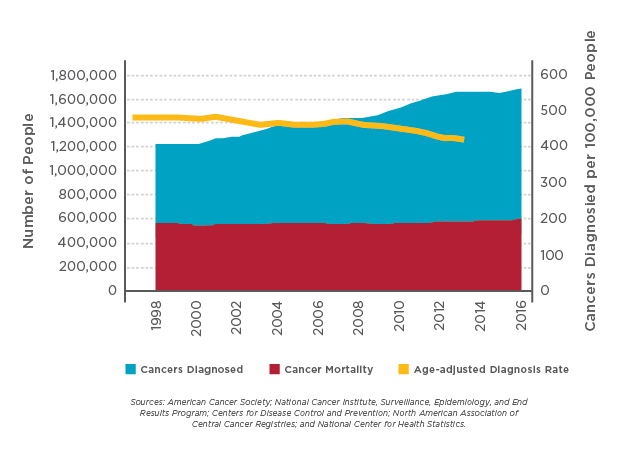
In 1971, President Richard Nixon signed the National Cancer Act into law, beginning the U.S. "war on cancer." More than 45 years later, we've made a lot of progress, but it can be hard to feel like we're winning when cancer hits close to home.
In just the past year I’ve had a close family member and a colleague die of cancer, and a good friend diagnosed with breast cancer. I’m sure my experience is not unique.
But personal tragedy shouldn’t cause us to lose sight of the fact that survival odds for many cancers have greatly improved and the rate of new diagnoses is slowly declining. At the same time, the number of people diagnosed with cancer every year continues to rise and we haven’t seen a decline in the number of people dying from cancer.

What explains this seeming contradiction? It comes down to a difference between risk and burden.
Risk refers to how likely it is for someone to get cancer. It’s usually described by what's called the age-adjusted incidence rate. Adjusting the rates by age allows us to compare cancer rates now and in the past, as demographics shift. A declining age-adjusted incidence rate means a 50-year-old now is less likely to get cancer than a 50-year-old in 2000.
That is real progress. It means we’re identifying exposures and habits that can cause cancer and addressing them. But the country’s population is growing and getting older: a 50-year-old today may have lower risk than one in 2000, but there are a lot more 50-year-olds today.
That means cancer is more and more likely to touch our lives. If we want to make a dent in the number of people getting and dying from cancer – the cancer burden – we’re going to have to do a much better job of reducing risk.
At the individual level, there are a number of things we can do. Cancer screenings and paying attention to changes in our health can help catch the disease early, make treatments more effective and improve quality of life. Even more importantly, we can take steps to reduce our risk of getting cancer in the first place.
Everyone knows the basics: don’t smoke, eat right and get active. And last week, EWG released a set of tools, tips and recipes for a cancer defense diet.
But it’s also important to remain aware that we come into contact with a variety of toxic chemicals and contaminants every day. EWG has advice for getting some of the most dangerous ones out of your life, but we are also going to need strong regulations to get our air and water clean. We're fighting for the environment at the federal, state and local levels, and you should too.